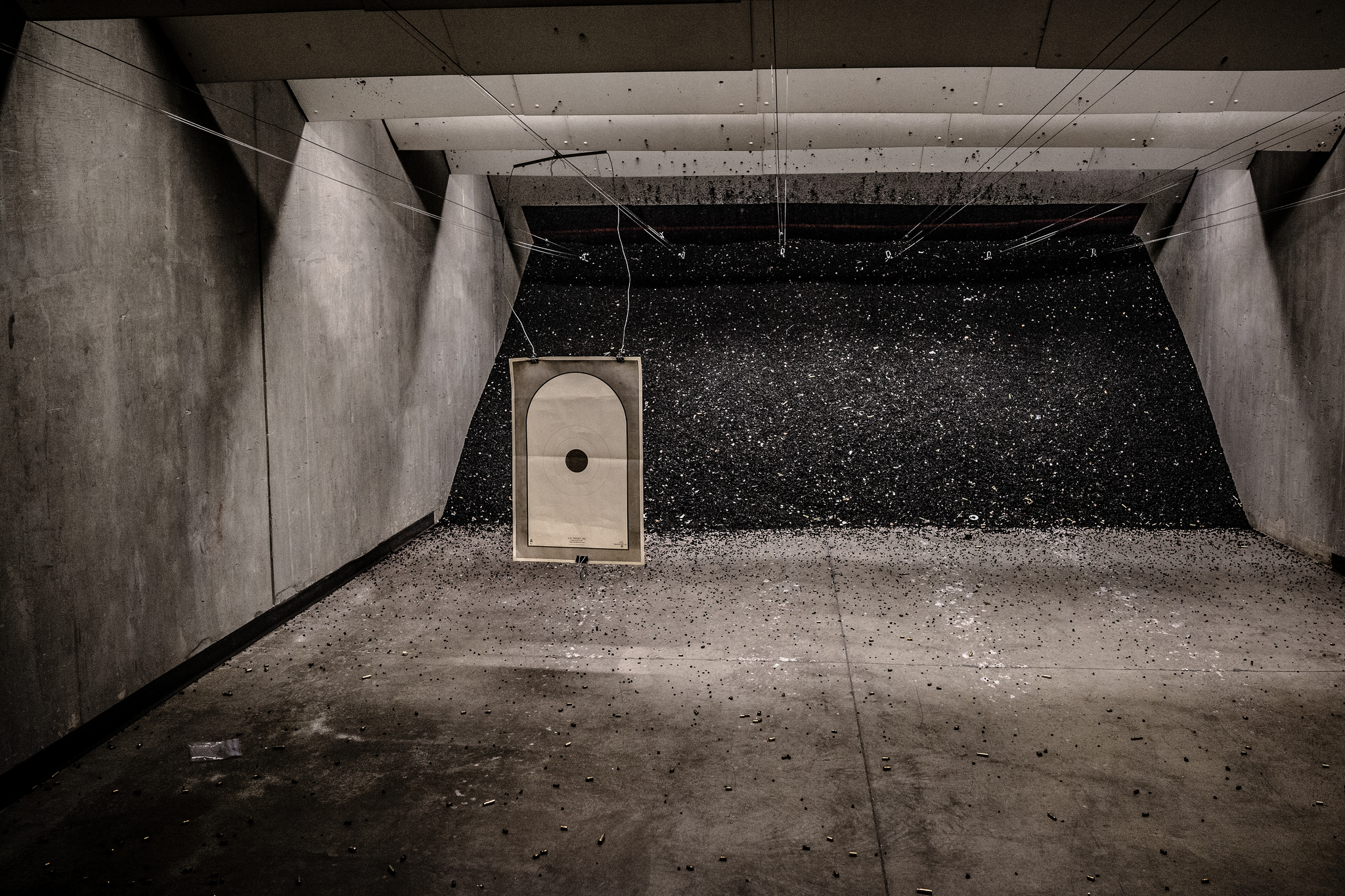When Veronica Lewis walked into a Vermont Target Sports last week and asked to shoot a gun, she wasn’t required to pass a background check. If she had been, the check would have turned up the native New Yorker’s lengthy criminal rap sheet and a state order that explicitly prohibits her from possessing firearms. But she wasn’t, and after finishing a gun safety course, Lewis opened fire on instructor Darryl Montague, critically wounding him, before making off with the .22-caliber handgun.
It’s not the first time a person otherwise barred from possessing a firearm has committed a crime at a shooting range. A federal background check is not required to rent or handle firearms at any range in the United States, and in some states, like Florida, checks on a gun-renter are illegal. If someone heads to a range determined carry out violence, they will not encounter the hurdle that would keep a gun out of their hands at a licensed dealer.
“[Criminals] can go and play with a gun, handle it, fire it, even take pictures with it to intimidate other people, and nobody is going to know about it,” Joseph J. Vince Jr., a retired ATF supervisor, told the Milwaukee Journal Sentinel in a 2010 investigation about the lack of background checks at gun ranges.
In perhaps the most publicized case of murder at a gun range, Chris Kyle, the lauded Navy SEAL sniper, was shot and killed along with his companion, Chad Littlefield, by a mentally unstable veteran suffering from PTSD. No background check was required at that rural Texas range.
In 2009, 44-year-old Marie Moore shot and killed her 20-year-old son and then herself at Shoot Straight in Casselberry, Florida. Moore had been involuntarily institutionalized in 2002 and wouldn’t have passed a background check. In 2011, Bambi Hilburn, 38, was murdered by a man she met on a dating website at Bullet Hole shooting range in Overland Park, Kansas. He then killed himself.
Last summer, The Trace Editor-at-Large Adam Weinstein reported on the growing toll of shooting deaths at ranges, often committed with rented guns:
The CDC has tracked about 50 suicides at gun ranges in recent years, but that’s only from piecemeal stats in a handful of states — and it doesn’t include freewheeling Florida, where there have been a rash of range deaths, including a handful in Tampa Bay and a whopping 11 with rented guns in the Orlando area alone since 2009, prompting some range owners to shut down their rental operations.
Though some cities have instituted their own procedures for identifying at-risk shooters at gun ranges — through background checks or other methods — there are no state or national standards. In New York City, a 50-state criminal background check is required to shoot a pistol or rifle. These checks are administered by private companies, which run a state I.D. or driver’s license. Unlike the federal NICS background check, they do not run social security numbers — and often yield inconsistent results. Once outside of city limits, the check disappears.
In Vermont, which has notoriously loose firearm regulations, neither a NICS check nor a 50-state criminal background check is required. But even in states with the strictest gun regulation, ranges present a loophole. At Angeles Shooting Range in Lake View Terrace, California, an employee sounded perplexed at the very question of conducting background checks on customers: “Just to shoot a gun? Um, no.” At Maryland Small Arms Range in Upper Marlborough, no checks are performed. At Shore Shot in Lakewood, New Jersey, no checks are administered, but because of a recent rash of suicides, single patrons must bring a guest if they wish to rent a firearm.
A woman who answered the phone at LaBerges’ Shooting Range in Charlotte, Vermont, but declined to be identified, shared her opinion about the shooting of Darryl Montague.
“They said it couldn’t have been avoided,” she says, “but it could have been because she should have been locked up.”
[Photo: Flickr user Lachlan Donald]

